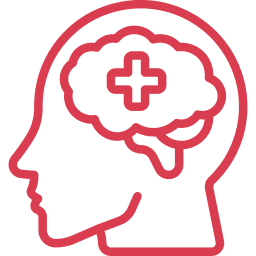Postural Orthostatic Tachycardia Syndrome (POTS)
Postural Orthostatic Tachycardia Syndrome (POTS) mental health services offered in Doylestown and King Of Prussia, PA.

Understanding the Mental Impact
Postural Orthostatic Tachycardia Syndrome (POTS) is a condition characterized by an abnormal increase in heart rate upon standing, which can lead to a range of physical symptoms. These persistent symptoms can significantly impact mental health, leading to anxiety, depression, and other challenges. If you’re experiencing mental health issues related to POTS, our team at P.S. Psychiatry is here to help. We specialize in treating the mental health symptoms associated with chronic conditions, helping you regain emotional balance and improve your quality of life.


Mental Health Symptoms of POTS
The mental health challenges associated with POTS can be diverse and impactful. Identifying these symptoms is crucial for getting the right help. Below are some common mental health symptoms associated with POTS to discuss with your P.S. Psychiatry professional.

Anxiety: Ongoing worry and fear, particularly about physical symptoms and daily functioning.

Depression: Persistent feelings of sadness, hopelessness, and a lack of interest in activities you once enjoyed.

Chronic Fatigue: Persistent exhaustion that is not alleviated by rest and impacts daily functioning.

Cognitive Difficulties: Problems with memory, attention, and mental clarity, often referred to as 'brain fog'.

Sleep Disturbances: Difficulty falling asleep, staying asleep, or experiencing restful sleep, which can worsen other symptoms.

Treatment Options
Managing POTS can be challenging, but there are effective treatments available for the mental health symptoms associated with it. Our team at P.S. Psychiatry offers several options to help you manage these symptoms and improve your overall well-being.

Medication: A prescription from your P.S. Psychiatry provider can help with the mental health symptoms associated with POTS.

Therapy: Talking with a Therapist or Coach is a great place to learn different strategies to navigate your mental health symptoms associated with POTS.

EFT/Tapping: Tapping is an evidence based therapeutic approach that brings relief from mental health isssues. EFT may be a valuable tool to add to your treatment plan for the mental health issues of POTS.

Health Coaching: The old saying “you are what you eat” is essential when you are struggling with a medical issue that has emotional side effects. A Health Coach/Nutritionist can help understand what the best diet and supplements are for POTS.

We're Here to Help
When you’re ready to talk, we’re ready to listen. Tap the button below to get in touch with P.S. Psychiatry and schedule your appointment.